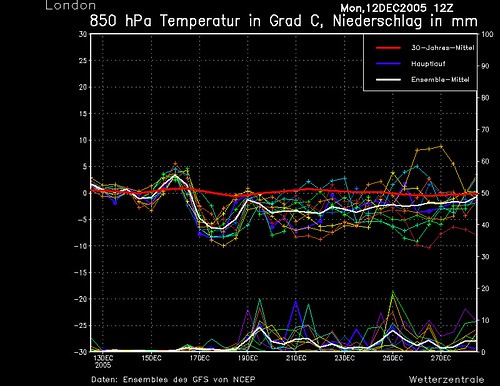Warm weather has given the government a "breathing space" on Gas Supply according to the Chairman of the Independent Energy Scrutiny Panel, John Hemming MP. He has, however, tabled a commons motion putting pressure on the government to act now before things get colder.
"At 2pm today the National Grid's forecast demand for Thursday 1st December was 332 million cubic metres of gas. This is actually 36 mcm less than is normal for this time of year." said Mr Hemming.
"With a bit of luck the UK could heat itself at these temperatures without drawing much from Storage. However, although this gives a breathing space and possibly prices could come down this does not mean the UK is now safe from the possibility of a Gas Emergency. I cannot stress how important it is that we avoid such an emergency. It would lead to the CBI's worst case where much or all of the gas generators are closed down to maintain gas supply to peoples properties. This could entail rolling blackouts if brownouts were not sufficient."
"Everyone knows that gas usage links directly to temperature. A study of 5 years gas demand and its correlation to temperature came out with a second order formula for demand linking monthly average temperatures and gas demand. This formula is
GD = 0.525 * C**2 - 28.8 C + 508.
C is the temperature in degrees Centigrade and GD is the average Gas Demand in cubic metres per day.
"The effect for the UK is that if temperatures get colder again then we should start the heavy demand on gas storage. Tuesday's withdrawal was 693 GWh (or 62.4 mcm) which was the highest seen so far this year."
"I have tabled a commons motion calling for government action on the Gas Crisis. This reads as follows:"
"This House notes that at the rate at which gas was being taken from storage on Tuesday 29th November the UK would have entered into a Gas Emergency and be required to switch off some and potentially all gas electricity generation (which is 40% of supply) by mid-January; further notes that it was warmer on Thursday 1st December and if it stays at similar temperatures, which is unlikely, the UK will not face a Gas Emergency this winter; further notes, however, that 13% of the gas in Long Term Storage was withdrawn in the last 2 weeks and that on the rolling 7 day average of storage withdrawals on Tuesday the UK would face a Gas Emergency by 1st February and believes that the Government should do more than pray for warm weather and should be looking at further action for preventing and minimising the severity on the UK of a Gas Emergency as a matter of urgency."
Key urgent actions that are needed from the government are:
1. The market to insure transport risk on imports via the interconnector
2. Changes to ensure usage of the facilities at Isle of Grain - improved UIOLI contracts
3. A contingency plan to handle potential Russian supply cut offs
4. A plan to reduce heat demand in commercial premises through turning down thermostats - the House of Commons would be a start
5. Research into other possible non-price sensitive demand reductions.
6. Action to ensure that LNG imports are brought into the UK
John Hemming "It is sad that security of supply has been sacrificed for short term price benefits. The costs of security of supply are of the order of 1p per therm. If we got to the stage of having to cut off domestic customers, and I don't think it will get that bad, then there are estimates that it would take 3 months to reconnect supply if as many as 1.5 million customers were cut off. Security of supply has to be key. Universal Network Code 044 seems to put cost before security."
